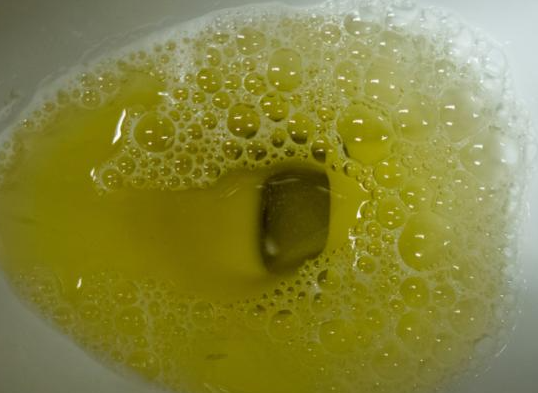
That first trip to the bathroom in the morning is often a routine, half-asleep event. But sometimes, you glance into the bowl and notice the water isn’t clear. It’s hazy, murky, or even milky. It’s easy to dismiss it as a bit of concentrated urine after a long night, and sometimes, that’s all it is. But when this cloudiness becomes a regular occurrence, it’s time to stop flushing and start paying attention. This isn’t just a sign of dehydration; it’s a visible signal, your kidneys’ way of waving a red flag and crying for help with crystallization, infection, and inflammation.
Think of your kidneys as the body’s most sophisticated water filtration plants. They work tirelessly to remove waste products and excess substances from your blood, sending the final product—urine—on its way. Cloudy urine is the visual evidence that the filtration system is dealing with an unusual amount of sediment, debris, or invaders in the water supply.
Here’s a breakdown of what that cloudiness could mean.
The Cry for Help: “We’re Forming Crystals!”
One of the most common reasons for cloudy urine is the presence of solid crystals. Your urine contains minerals and salts, like calcium, oxalate, and phosphate. When these substances become too concentrated, they can begin to crystallize.
- The Dehydration Link: This is the most benign cause. Overnight, when you’re not drinking, your urine becomes naturally more concentrated. If you’re chronically dehydrated, this concentration can tip the scales, leading to a cloudy appearance from these microscopic crystals.
- The Kidney Stone Warning: This is the more serious implication. Those tiny crystals are the building blocks of kidney stones. Consistent cloudiness can be an early warning that your urine chemistry is primed for stone formation. Your kidneys are essentially showing you the “sand” before it has a chance to form a painful “pebble” that can block your urinary tract.
The Cry for Help: “We’re Under Attack!” (Infection)
If the cloudiness is accompanied by a strong, unpleasant odor, a burning sensation, or a frequent urge to urinate, the message is urgent. This type of cloudiness is often due to an army of white blood cells and bacteria.
- The UTI Connection: A urinary tract infection (UTI) triggers your immune system to send white blood cells (pus) to the site of the infection to fight the bacteria. This mixture of bacteria, white blood cells, and inflammatory cells clouds the urine, turning it milky or murky. Your kidneys and urinary tract are screaming that they are hosting an unwelcome bacterial invasion that needs immediate medical eviction.
The Cry for Help: “There’s Too Much Protein!”
In a properly functioning system, the kidneys’ filters are fine enough to keep important proteins in the blood. But when those filters are damaged or inflamed—a condition known as proteinuria—protein can leak into the urine.
- The Inflammation Signal: This leakage can sometimes cause the urine to appear foamy or persistently cloudy. Protein in the urine is a major red flag for kidney disease and can be associated with conditions like diabetes and high blood pressure, which are the two leading causes of kidney failure. The cloudiness is a visible sign that the kidney’s delicate filtration membranes are compromised.
What Your Kidneys Are Asking You to Do
When you see that consistent cloudiness, your kidneys aren’t just complaining; they’re giving you a chance to act.
- The Hydration Test: Your first move is to drink several large glasses of water throughout the day. If the cloudiness clears up and stays clear, dehydration was the likely culprit. Your kidneys were simply asking for more water to properly dissolve the waste products.
- Look for Other Clues: Is there a foul smell? Pain? A fever? These point strongly toward an infection.
- Schedule a Doctor’s Visit: If increased hydration doesn’t solve the problem within a day, or if you have any other symptoms, see your doctor. A simple, non-invasive urinalysis (a urine test) can instantly detect the presence of crystals, white blood cells (indicating infection), and protein (indicating kidney filter damage).
Cloudy urine in the morning is a message in a bottle—quite literally. It’s your body’s way of making an internal process visible. By understanding this signal, you can move from being a passive observer to an active participant in your kidney health. You can answer their cry for help with the two most powerful tools you have: a glass of water and a timely conversation with your doctor. Taking action can mean the difference between solving a simple issue and preventing a serious, long-term problem.